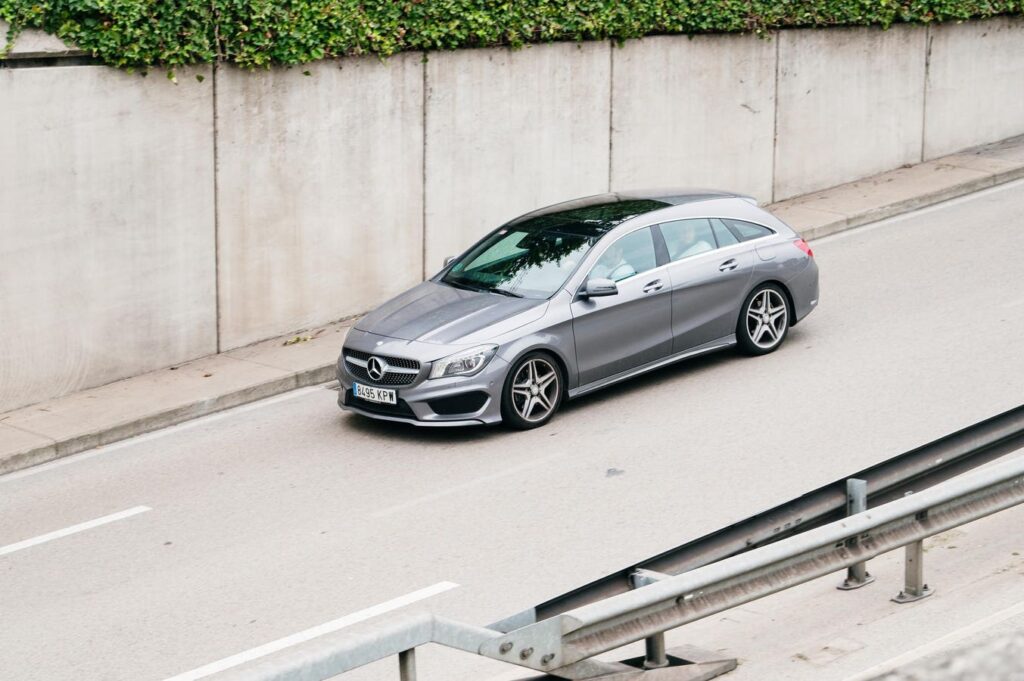Mercedes shares dived more than 5-1/2% as it slashed costs and forecast weaker profits for 2025 but analysts had been bracing for worse numbers and reckoned the company was doing well compared with other German automakers.
Successful electric vehicles are key to any recovery, while an unexpected turnaround in internal combustion engine vehicle sales will boost profits short-term.
BMW gets the nod from one analyst as being in a strong position, thanks to its leadership in electric vehicles.
Meanwhile, Mercedes’ share price had been had been advancing, despite investors expecting the auto industry to face severe problems in 2025. European sales appear headed for stagnation at best, and competition from China is increasing, especially with EVs. Tightening European Union CO2 emissions rules will require strong EV sales. Tariff threats from the Trump administration were a big worry, not least because of the impossibility of predicting the scale of the possible hit.
Mercedes shares rallied from a low of €51.21 in mid-November to €61.94, until news Thursday lower profits are expected, and it plans to cut production costs by 10% through 2027. On Friday the shares closed at €58.24 in Europe, according to Reuters.
Mercedes said its car-making profit margin dropped to 8.1% last year from 2023’s 12.6% and would dip to between 6 and 8% in 2025. That compares with a more bullish future expected as recently as 2022 which included a long-range profit forecast of up to 14% in good times and no less than 8% in tougher ones.
Last year’s biggest problems were weakness in China and the German home market where the withdrawal of government subsidies crippled EV sales. Global sales in 2025 are expected to be less than 2024’s 1.98 million. Later this year Mercedes will launch a new C-Class CLA, and next year an updated S-class limousine.
“To ensure the company’s future competitiveness in an uncertain world, we are taking steps to make the company faster, leaner, and stronger,” said CEO Ola Kallenius in statement.
Professor Ferdinand Dudenhoeffer, director of Germany’s Center for Automotive Research, said Mercedes has less problems than some other German automakers.
“There are other German manufacturers that have more to worry about than Mercedes. The efficiency and savings program is making Mercedes stronger in terms of costs, the new C-Class with the CLA is important for 2025 and the renaissance of the combustion engine in the USA and Europe is making Mercedes more profitable. However, it could be a temporary high if future electric cars do not attract more attention from customers. China and the electric car in China is the big challenge for Mercedes,” Dudenhoeffer said in an email.
Other big automakers in Germany include BMW, Volkswagen and its spun-off Porsche subsidiary. President Trump’s decision to scale back U.S. government mandates, which would have forced manufacturers to make and sell more EVs, has been scaled back. This will revive the U.S. market for ICE vehicles. In Europe, the strict rules forcing more EVs on the market are expected to be diluted by the EU, leading to a revival of ICE technology here as well.
Frank Schwope, Automotive Industry lecturer at the University of Applied Sciences FHM Hannover, said Volkswagen and Porsche have already initiated cost-cutting programs but BMW seems to be more secure.
“Only BMW seems to be in a better position. BMW’s openness to technology combined with its advantage in electromobility shows the company’s strengths. In addition the “Neue Klasse” will be launched at the end of the year, which could become a new milestone for the Group,” Schwope said in an email.
Mercedes hosted a meeting for potential investors last week (a so-called CMD or Capital Markets Day) when it announced a €5 billion ($5.23 billion) share buyback and gave a preview of 15 upcoming electric and combustion vehicles being launched through early 2028.
Investment researcher Bernstein was impressed but not overwhelmed.
“The CMD was certainly a tour-de force, and we came away more confident that Mercedes has credible technology and product responses to the significant challenges faced by legacy auto. But with most of these new products only having a positive impact from 2027, it is clear that 2025-26 will remain challenging. We therefore are not sure we see any immediate catalysts that move the stock near term,” Bernstein said in a report.
Read the full article here


